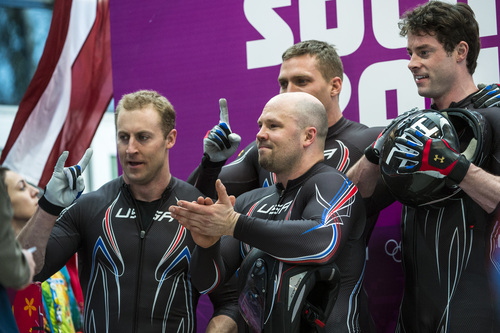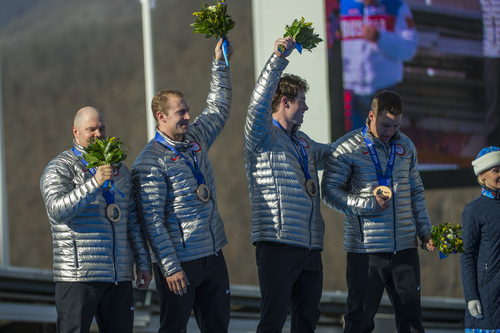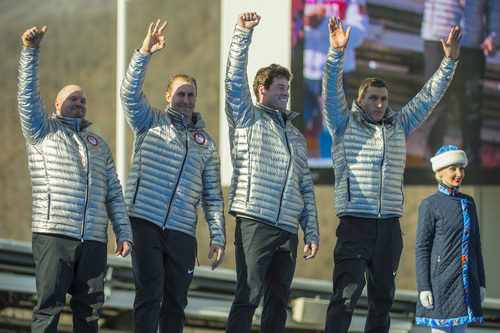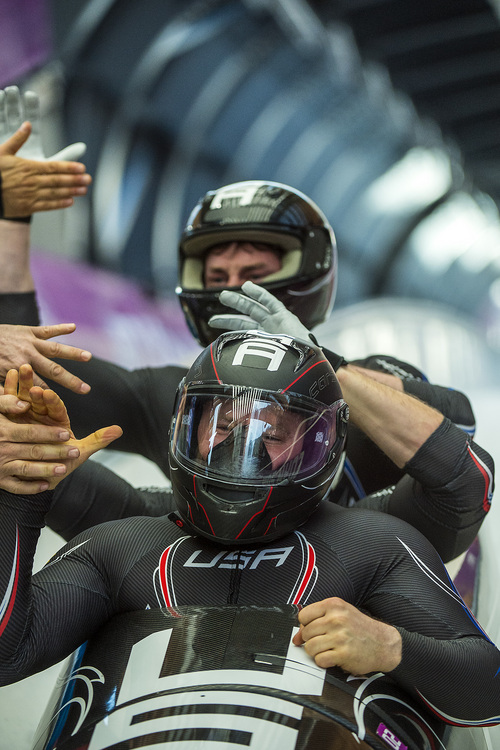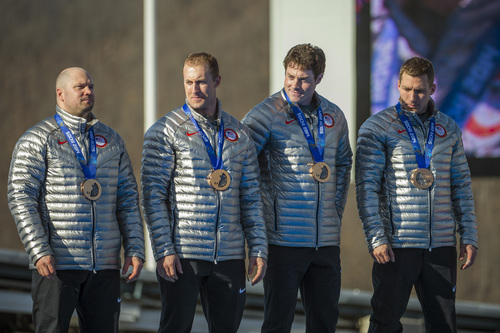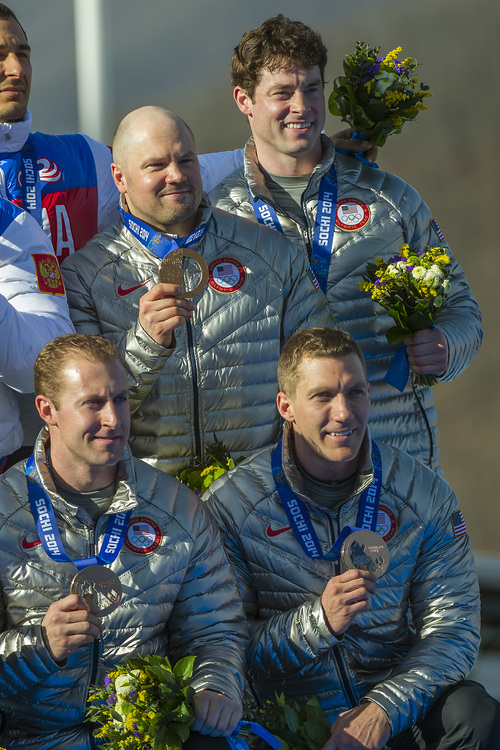This is an archived article that was published on sltrib.com in 2014, and information in the article may be outdated. It is provided only for personal research purposes and may not be reprinted.
Krasnaya Polyana, Russia
The Closing Ceremony was approaching, so organizers could not defer the presentation of Chris Fogt's bobsled bronze medal to the following day, as they did with other Olympians in the 2014 Games.
That's only fair. Fogt deserved to be rewarded, right then and there Sunday afternoon at the Sanki Sliding Center.
Athletes arrive at the bronze medal step of the podium from different directions. The checkpoints in Fogt's journey to that moment included a bobsled crash in 2010, a tour of Iraq and a stop in fourth place, as of Saturday's first two runs of the four-man event.
So you'd better believe the resident of Salt Lake City's Avenues neighborhood appreciated his medal. After all, he was the only one in that sled with such an award. A third medal in the last two Olympiads pushes Park City's Steven Holcomb back ahead of skier Ted Ligety for the most medals of any native Utahn in Winter Games history. Holcomb drove a four-man sled to victory in 2010 and piloted a two-man sled to third place Monday. Curt Tomasewicz helped push Holcomb in Vancouver, and Steven Langton joined him in the two-man run.
Fogt, whose family moved to Utah when he was 10, desperately wanted a medal of his own. "If I was the only one in the sled who waked away without a medal," he said, "I'd be pretty sad."
The others would have felt the same way. "This is for him," Langton said. "He deserves it. He works his butt off and he's one of the most talented guys on the hill."
Fogt likes to act out a standard conversation regarding his 2010 experience, which ended with a crash. When folks learn he competed in the Olympics, they ask, "How'd you do?" His reply: "Last place."
He could smile during the latest retelling, as he walked through the interview area Sunday. "It's been tough to say that," he said. "Now, I have something to show for it."
Just then, someone handed Fogt a phone. His wife, Rachel, who's expecting the couple's first child in June, listened to his description of what she'd already witnessed — how Fogt and the other push athletes gave Holcomb the field's fastest start in three of their four runs, and he piloted them to the bronze medal with some drama. The way the USA-1 sled was losing time at the bottom of the last run, it's a good thing the finish line arrived when it did.
The ending was satisfying to Fogt and his family, that's for sure. Relatives of all ages gathered at his parents' home in Alpine, some even wearing his old racing suits, to watch him race at about 4:30 a.m. Utah time. "Probably woke up the neighbors," Fogt said.
That's OK. Fogt worked for this opportunity. He's a product of American Fork High School and Utah Valley University, where skeleton silver medalist Noelle Pikus-Pace was among his track and field teammates.
Prior to competing in the two-man event in Russia, he'd actually counted the days (1,445) since the afternoon in 2010 when he and Langton rode in the USA-2 sled that crashed. Then, he was edged by Langton, his friend, for the push spot in Holcomb's two-man sled that earned the bronze medal last Monday, while a less-experienced driver struggled with Fogt aboard.
But then Holcomb drove Fogt to the 28th U.S. medal in these Games, 15 days after Park City's Sage Kotsenburg produced the first one.
Words sometimes come haltingly for Fogt, who admirably has worked to overcome speech difficulties. Sunday, they flowed smoothly and effortlessly, just like his emotions.
Fogt, 30, will return to the U.S. Army in May at Fort Huachuca in Arizona, beginning two or more years of active duty. He may come back to bobsledding after that. He loves the Army, having once observed that such work sometimes makes sports seem "a little superficial." He acknowledges "a sense of guilt" about being away from the Army because of his bobsledding pursuits.
Yet his boss assured him that his athletic success could benefit the Army, and he's a proud soldier. When he reports in May, he's willing go anywhere he's assigned as "a regular Joe" — decorated with an Olympic medal.
Twitter: @tribkurt



